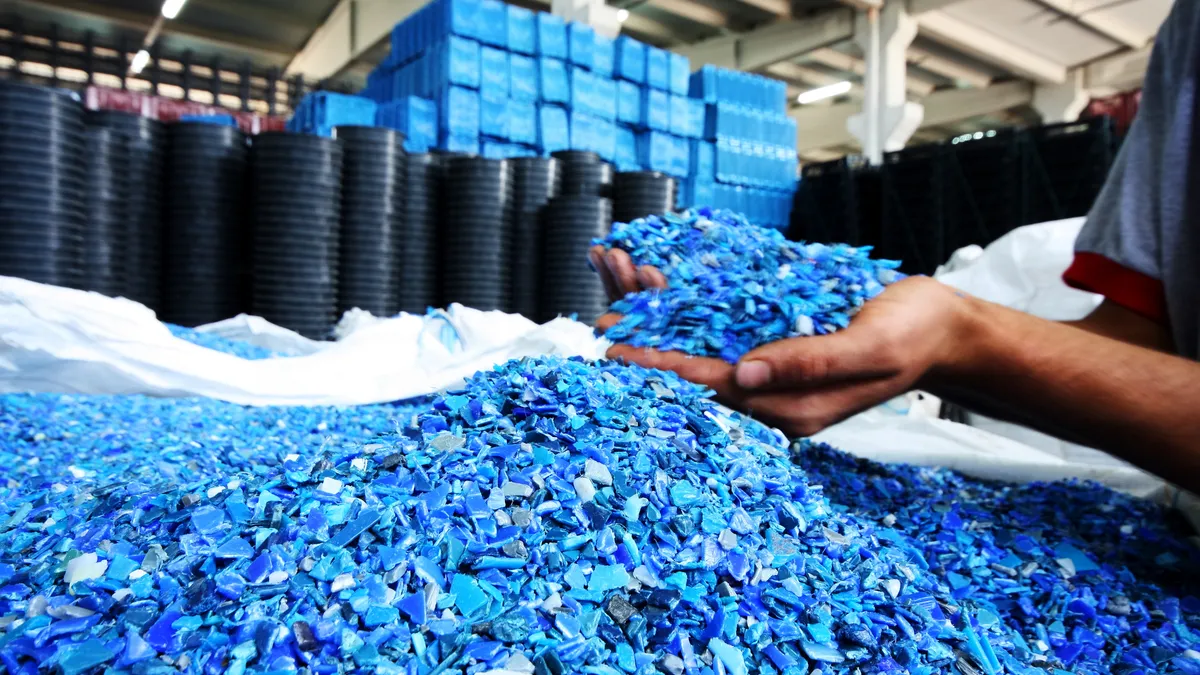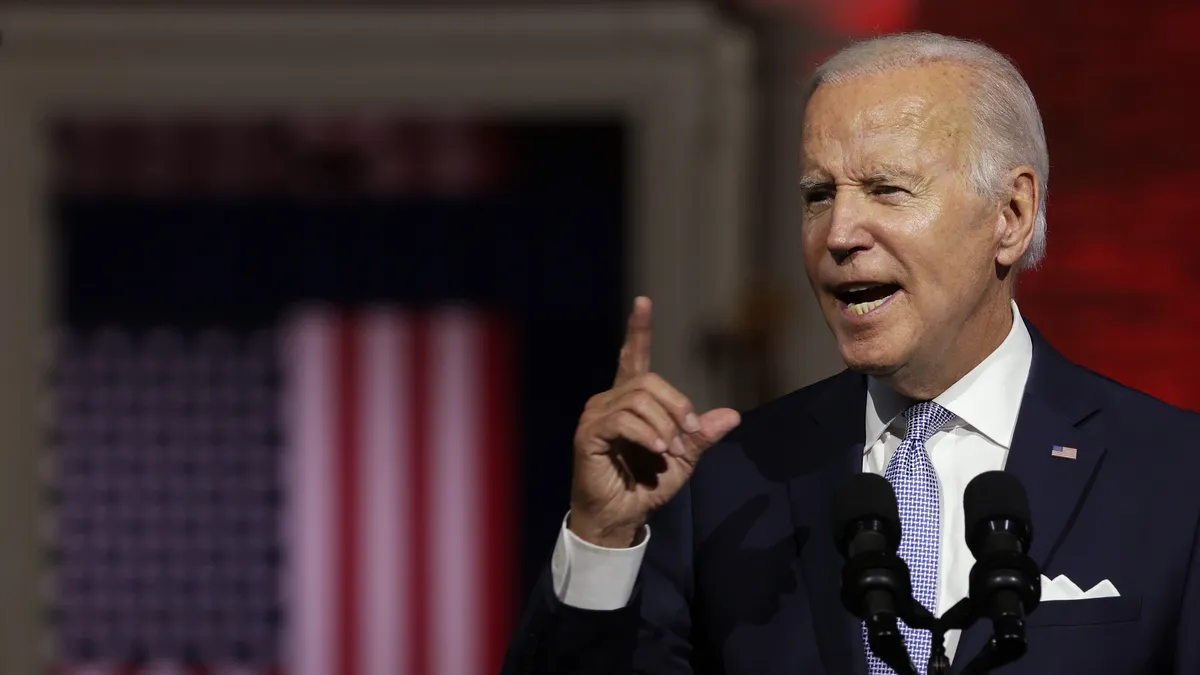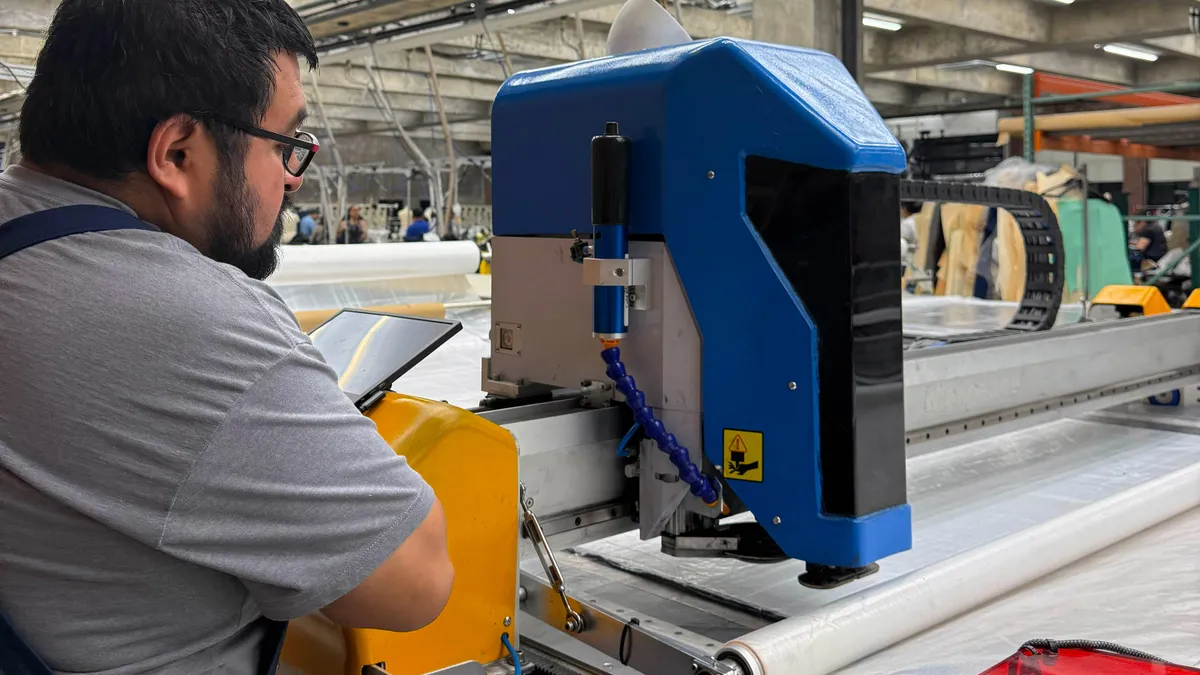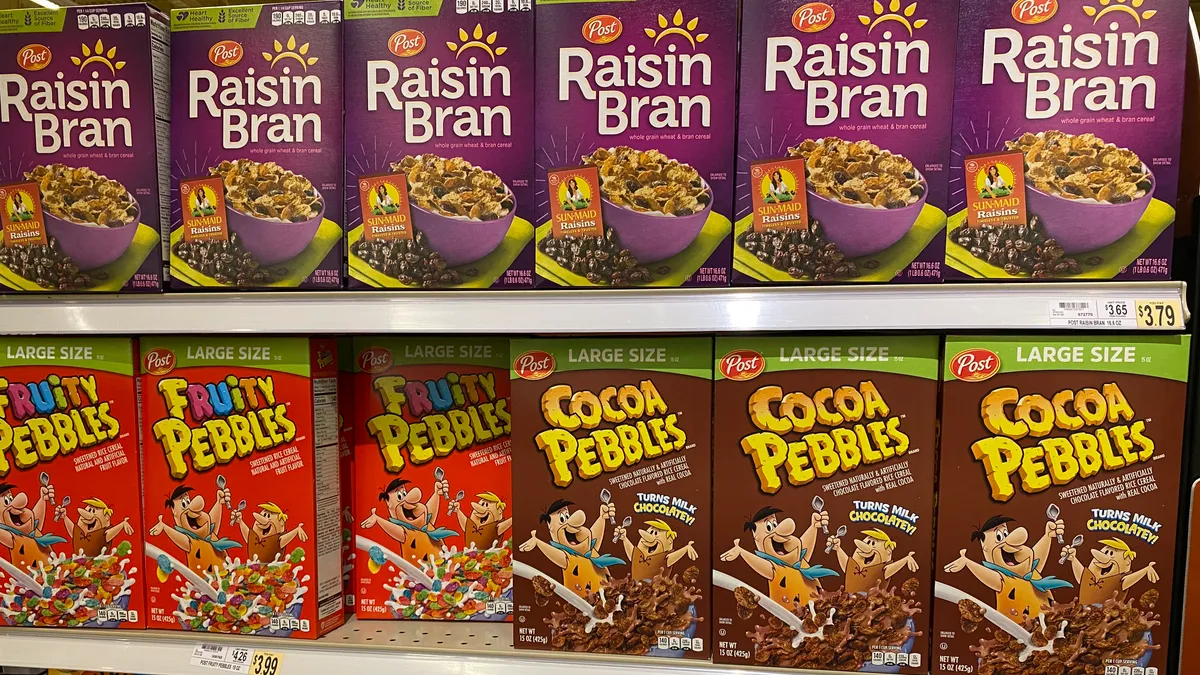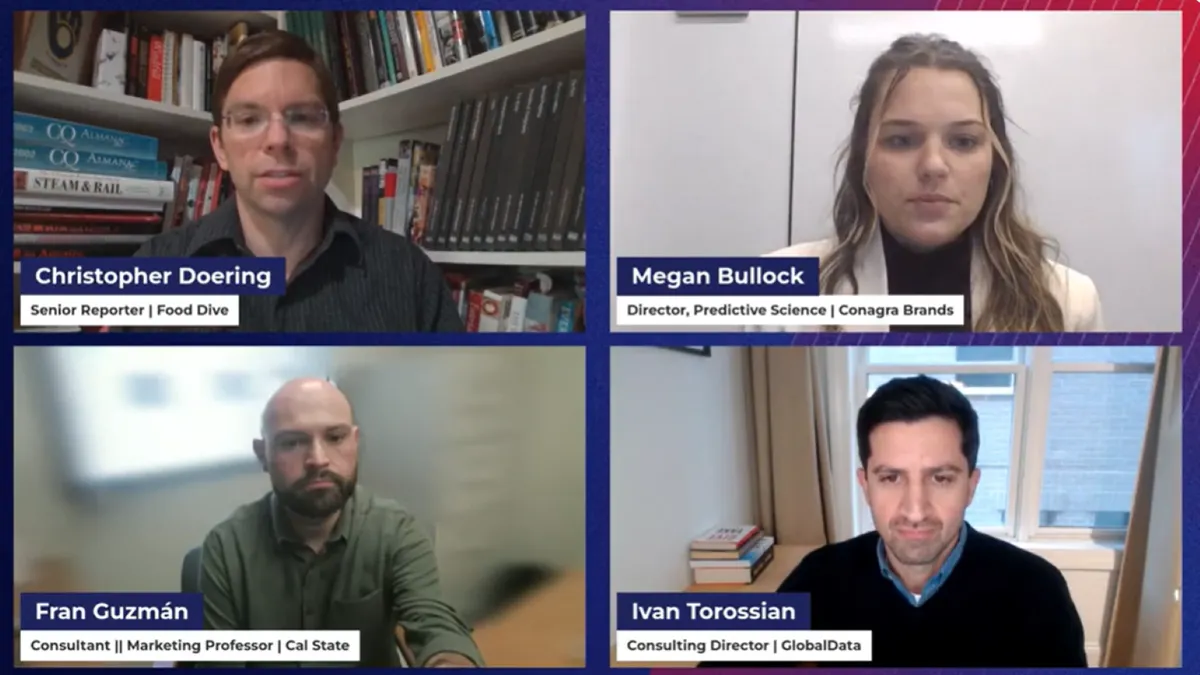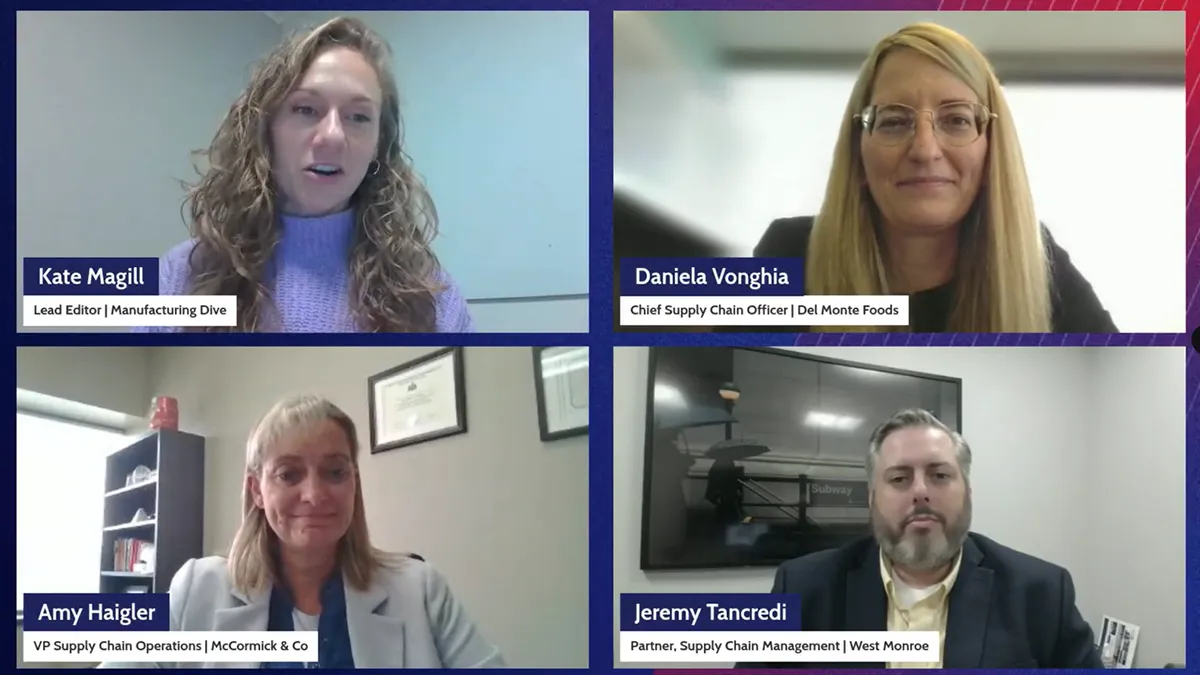Matt Seaholm is the President and CEO of the Plastics Industry Association. Opinions are the author’s own.
As political campaigns double down on the importance of American manufacturing, October brings real attention to this irreplaceable segment of the economy through the celebration of Manufacturing Month.
Manufacturing Month provides an opportunity to acknowledge a miracle material that is integral to nearly every manufacturing process across the globe and the segment of our workforce that provides it.
This material constitutes the majority of electric vehicles by volume, protects and preserves our food, insulates the wires connecting our homes and businesses, and is critical in the production of solar panels and wind turbines. This material is plastic.

Yet, despite its significance, the Biden administration has announced support to limit global plastic production. In August, Reuters was first to report that the administration is backing a global treaty to limit the amount of new plastic produced each year.
In just the past ten years, plastic has become a bit of a political football, targeted by fringe activist organizations as a public enemy. Interestingly, and perhaps as an election-year gesture, the White House recently and somewhat quietly, announced its support for limiting the global production of this material—one that is essential to practically all American manufacturers.
For over three years, leaders within this administration have rightly emphasized the importance of preserving and growing U.S. manufacturing jobs. However, support for manufacturing and the limitation of an essential material for the industry cannot go hand-in-hand.
If the administration is successful in advocating for this new position as part of the global plastic pollution treaty discussions, it could send a detrimental shockwave through the manufacturing supply chain.
While we strongly share the goal of eliminating plastic waste, limiting the production of a material that is an essential building block across manufacturing is not the solution.
Beyond industry-wide damage, this policy poses the risk of moving manufacturing offshore. Publicly, Commerce Secretary Gina Raimondo has stressed the need to strengthen domestic supply chains — a challenge when the administration is simultaneously restricting access to crucial materials produced here in the U.S.
Limiting domestic plastic production could result in job losses and force manufacturing to relocate to countries with less stringent regulations, including environmental standards. We expect that polyethylene production in Asia will continue to rise over the next five years, particularly in China.
Do we want to give China, who will likely disregard production limits, a competitive edge while potentially undermining global environmental standards? The pandemic and the war in Ukraine have taught us that stable supply chains are crucial, and increasing reliance on foreign manufacturers would make the U.S. more vulnerable to disruptions.
Vice President and Democratic presidential nominee Kamala Harris has announced a framework for her manufacturing agenda aimed at “making sure America, not China, wins the competition for the 21st century.” Her plan includes increasing investment in aerospace, biomanufacturing and other emerging technologies. Isn’t this position contradictory to supporting policies that limit the production of materials necessary for manufacturing in these industries?
Manufacturing jobs currently make up over 8.5% of the U.S. workforce, driving the economy, with $1.4 trillion in manufactured goods exported in 2021, according to the National Association of Manufacturers. According to the Plastics Industry Association’s recently released Size and Impact Report, the plastics industry alone is the eighth-largest manufacturing sector in the U.S., supporting over one million jobs across a diverse range of skills.
In fact, plastics manufacturing employment grew 1.1% per year from 2013 to 2023, outpacing total manufacturing. These are not just statistics; they represent stable employment that sustains families and communities nationwide.
The new White House stance threatens the livelihoods of millions of Americans, undermining sectors that depend on plastic materials including automotive, consumer goods, construction and healthcare.
Our country is a global leader in manufacturing quality, innovation and efficiency. Let’s not take away the materials that make this possible.
Every day, engineers work to make products lighter, thinner, and more sustainable — all while improving performance. Restricting the availability of new plastics would stifle this growth, limiting the development of advanced materials and processes that benefit numerous other industries and support a circular economy.
And then there is the environmental impact. Plastic is preferred by many industries for its unparalleled safety, protection and efficiency and potential for reuse and recycling, but also for the reduction in overall resource consumption.
According to a 2024 report in Environmental Science & Technology, plastics have a lower total greenhouse gas contribution than alternatives. Capping production in favor of alternatives could ultimately increase harm to the environment.
Manufacturing rarely occurs solely within the four walls of a factory. It happens as a collaboration between suppliers, designers, engineers, machinists, the customers and the list goes on. If you break that chain, the stability of manufacturing is put at risk.
Restricting the supply of plastics to domestic manufacturing will threaten American jobs and diminish the nation’s global competitiveness — all without advancing our shared environmental goals.
Actions must align with words. The plastics industry is committed to strengthening U.S. manufacturing — let’s create policies together to truly achieve these goals.


